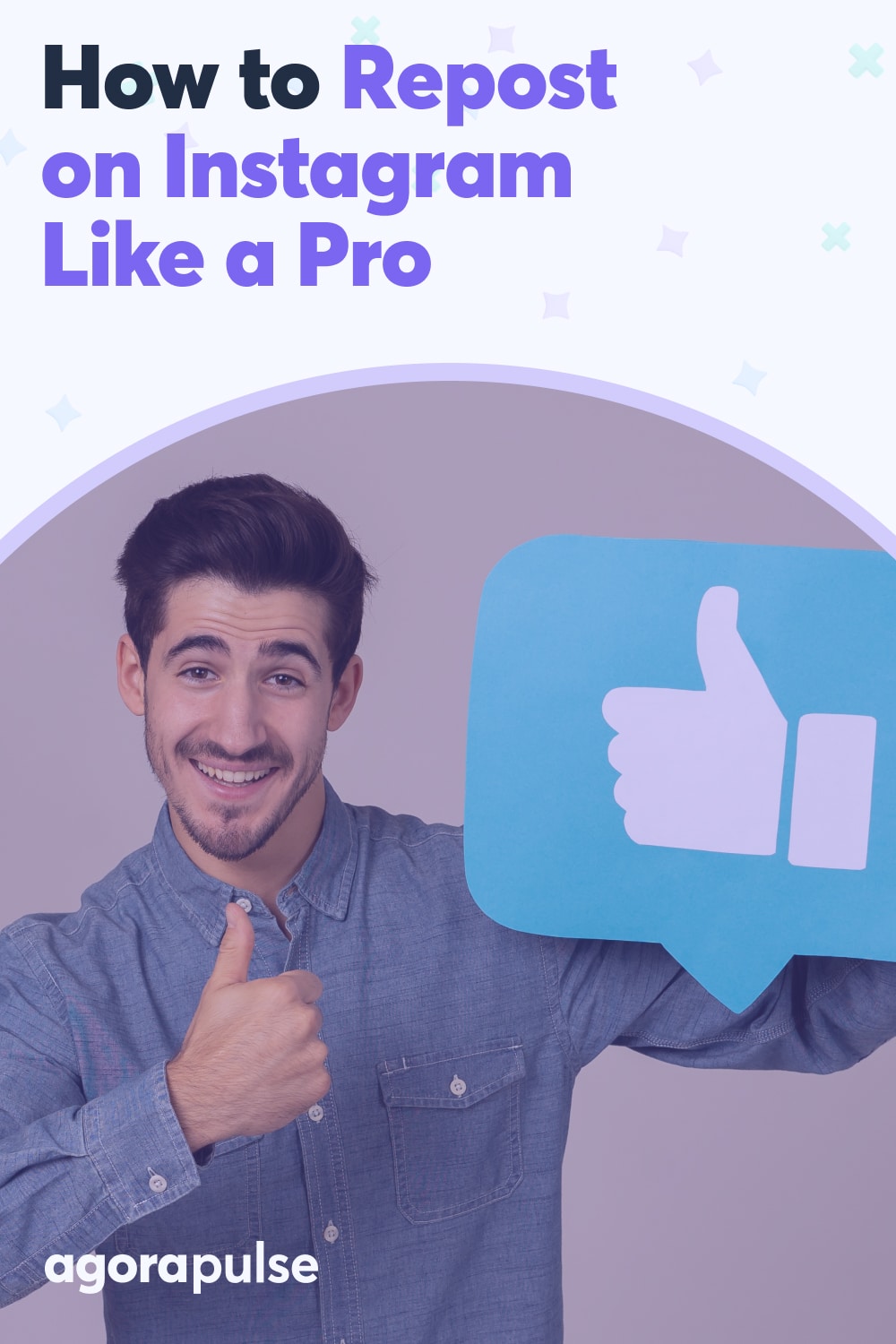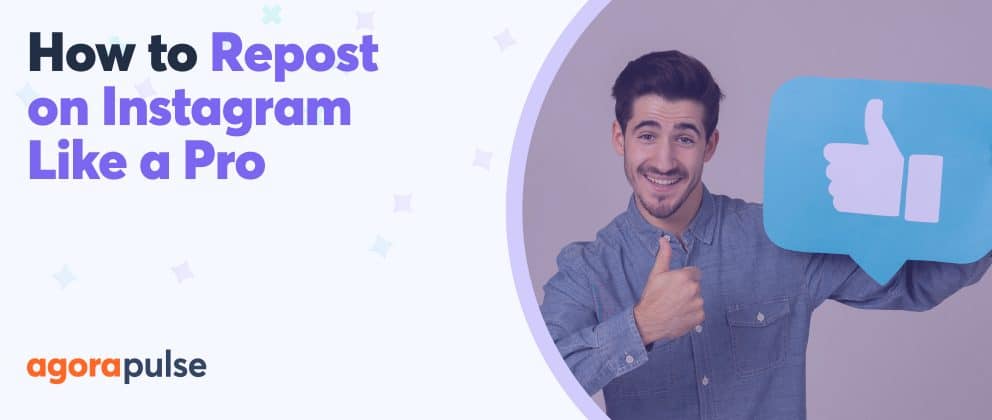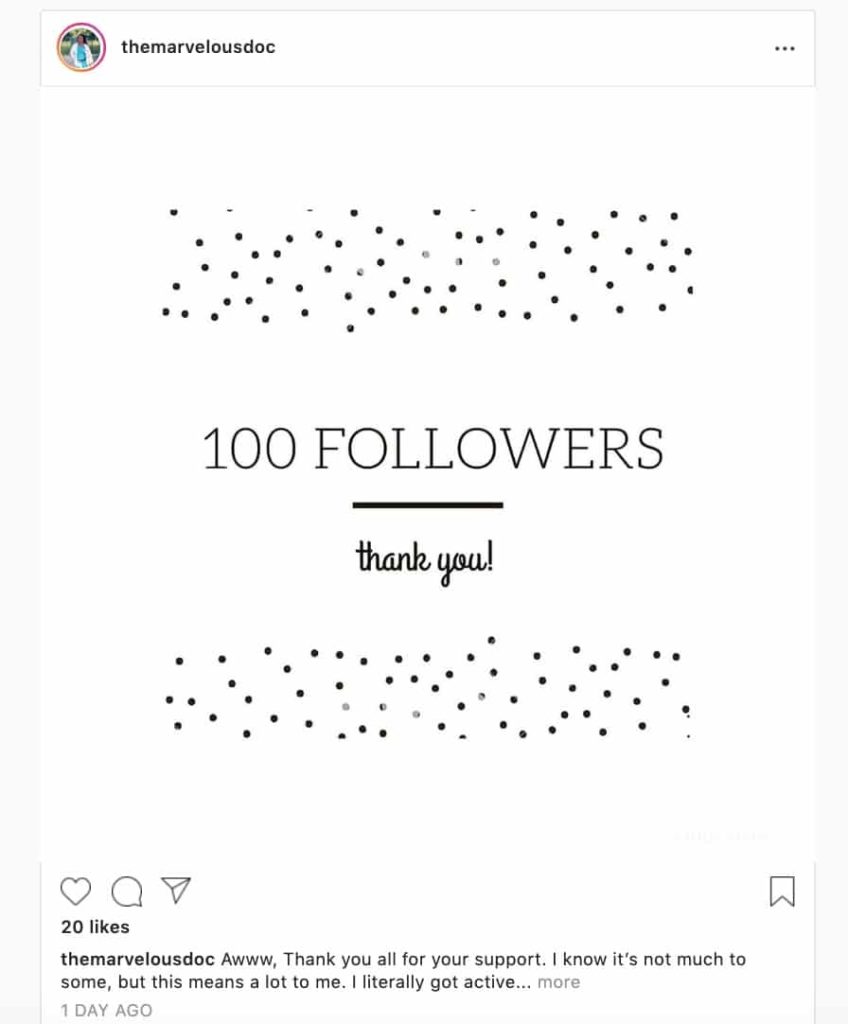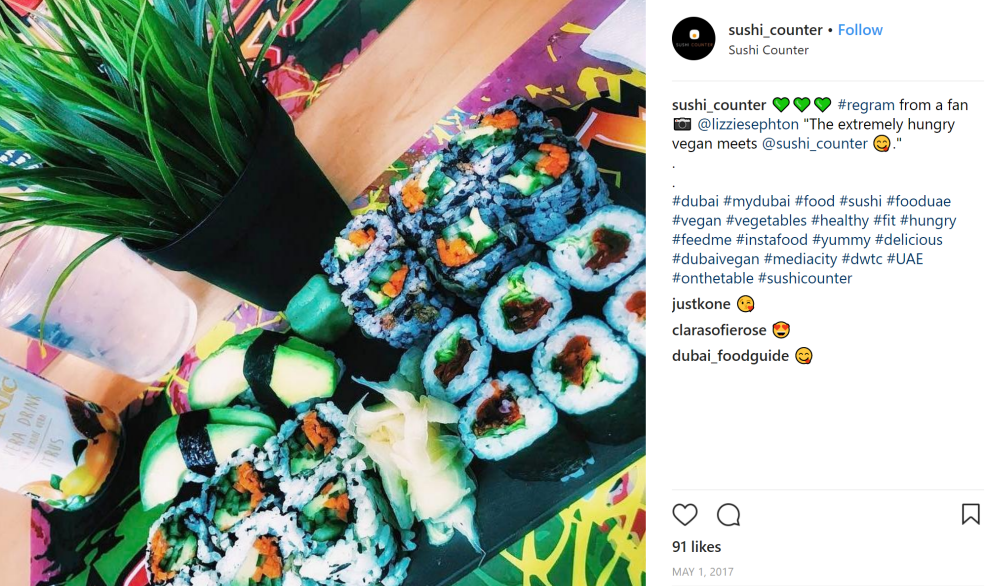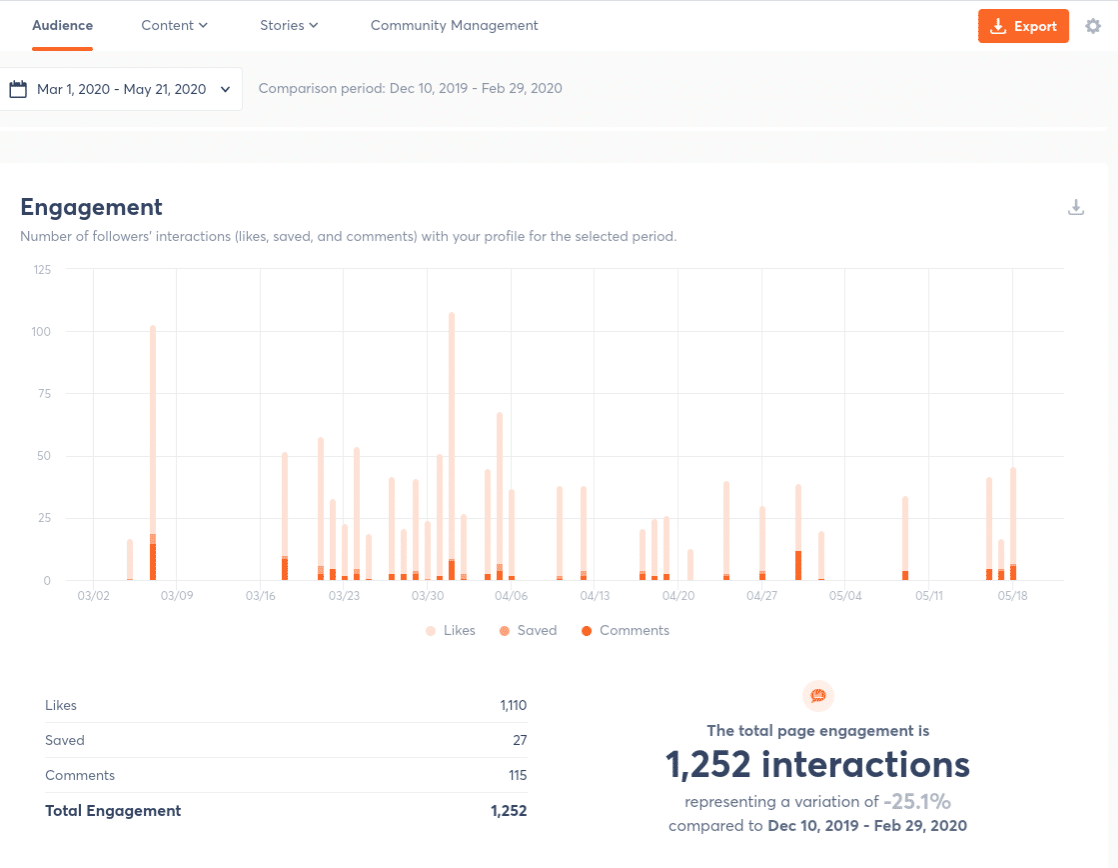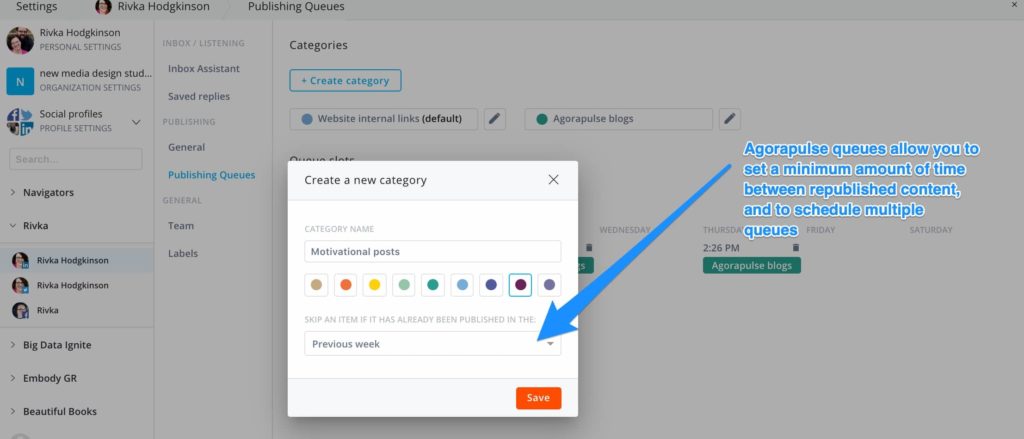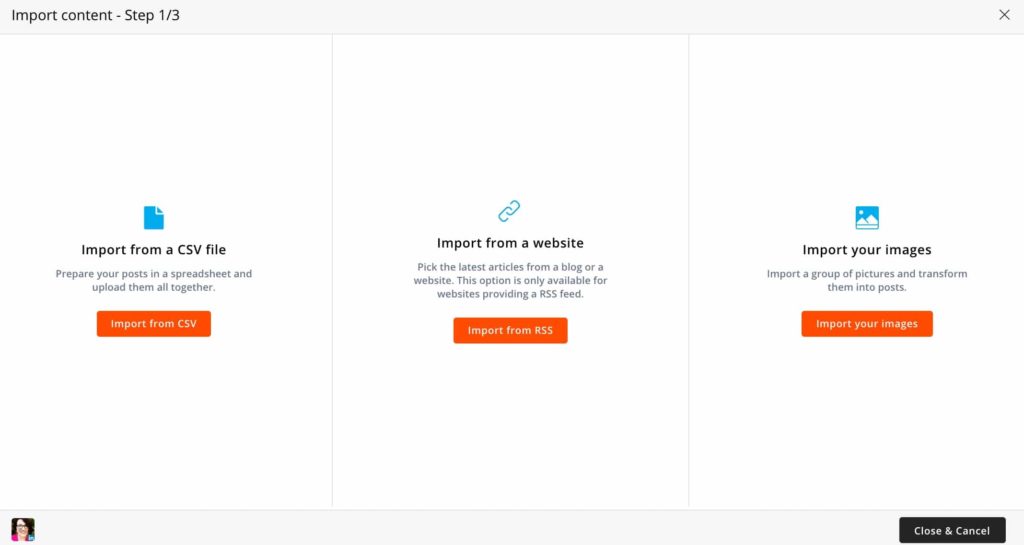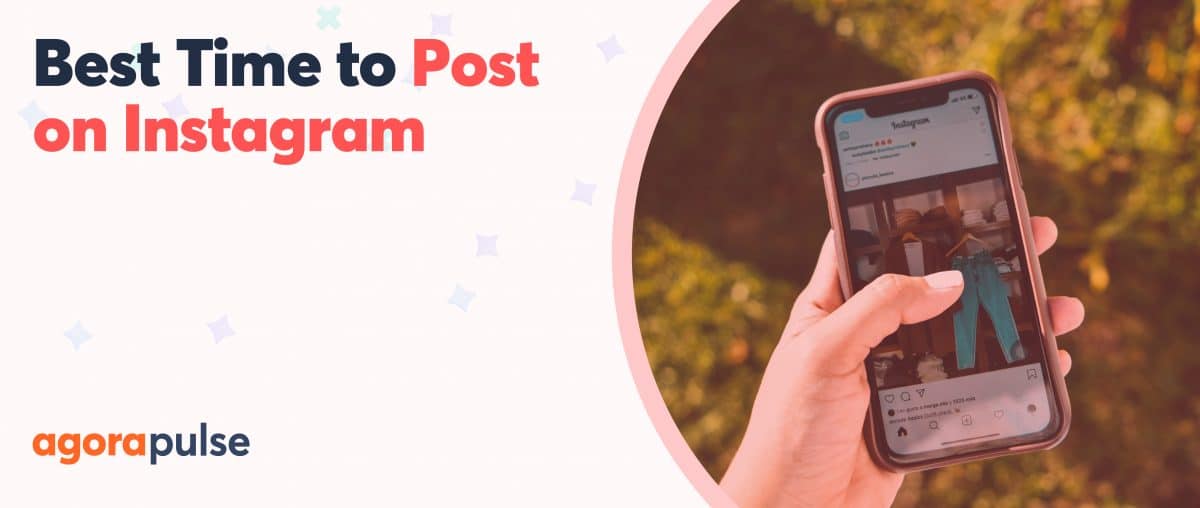Twitter has retweets, Facebook has shares, but what does Instagram have for sharing great content? To share is to repost on Instagram.
Instagram has now been around for a decade, but it still can feel like a new and puzzling platform. As algorithms are updated regularly, you need to know hat is working now to grow your followers and get your content seen by more people.
One part of that is having an effective reposting strategy.
Republishing/Reposting Defined
Evergreen content, content queues, cornerstone content, reposting (also known as republishing) … What do they all mean?
Basically, some of your content is valuable for more than the normal limited social media lifespan. And when you spend time creating amazing content, you want it to be as valuable to your audience as possible.
That ageless type of content (which may only need minimal updating now and then) is called evergreen content.
So, you’ll want to republish/repost that content. In other words, publish it again on your social media platform.
You may worry that doing so will make your feed feel stale, it will actually make your feed more valuable if you do it right.
(You can also repost content from other people, but we’ll tackle that later in this article.)
Choosing Which of Your Posts to Republish
What types of content should you republish, and how often?
Realize that not every post will work for republishing. For example, if the post is for a sale that expires or something else that is time-related, republishing won’t work well. But a lot of your content can be republished. Sometimes, even time-sensitive posts can be repurposed into new content.
Product photos
Having a high-quality library of product photos is one of the best resources you can have for your social media if you have a product-based business.
Assuming you have at least a couple dozen products, you can feature them multiple times. If you want to use the same photo but still mix it up, consider focusing on a different feature, zooming in to a different part of the photo, or asking a question about the photo.
Also, consider doing a regular “product of the week” or something similar.
Another way to bring some life into product photos is to share photos with ideas of how or where to use your products. Here’s an example from ZEGO Foods sharing what a great snack their bars make while skiing:
Achievements and milestones
Share achievements and milestones first as “news.”
This type of post might not seem a good candidate for content republishing. But you can still share the photo, and change up the text. You can now share it as a #ThrowbackThursday or at a future milestone.
For example, if you are getting close to 2 million items sold, you could share a photo from when you sold one million with something like “It was only 8 months ago that we hit one million products sold! How long do you think it will take us to hit 2 million?”
Motivation and Inspiration
Motivational and inspirational quotes and stories are great evergreen content. Just like product photos, you want to make sure that you have enough of them to avoid your content stream feeling too repetitious.
Make these types of posts are as relevant as possible. Rather than sharing a generic “feel good” quote, relate it in some way to your product or service.
Not sure how to do this? Ask yourself:
- What are the goals of my target audience?
- What obstacles do my face?
- Who has succeeded in doing what they want to do?
- What are some notable accomplishments in the field I am in?
- Who are the pioneers in my business industry?
- What inspirational or motivational things has our own founder/owner said?
You also want to double-check your sources when you post this type of content. You don’t want to lose credibility because of a misquote.
How-to posts
Would it help if your product or service came with some instructions? Are there things you wish your audience knew before they even came to you? What related products or services might your customers be struggling with when they are working with you?
These are all great sources of how-to content. Those types of posts will likely stay the same somewhat long-term, so they make perfect republished content.
Bonus tip: Consider putting the power of video to work on these types of posts! And you can create videos even if you don’t feel comfortable being in front of the camera.
Reposting Other People’s Content
Are you struggling to come up with regular new content? Don’t worry, you can also repost other people’s content.
Grab your FREE social media calendar, packed with content ideas and more.
Popular posts from other users
Though the potential popularity of any post is often hard to know before it’s actually posted, one thing that’s guaranteed: the person who you regram (read: “sharing another user’s post on Instagram”) from will definitely be checking out your brand. And it’s very likely that many of their friends will be, too.
Knowing this, make sure to maximize the utility of your regrams by not just using great Instagram content but also focusing on borrowing that content from accounts you want to target. This type of strategy is similar to growth hacking or even account-based marketing, and it is highly effective.
If you’re looking for an excellent example of regramming done right, you need to look no further than the Plated Instagram account. This meal-delivery service uses as many user pictures as possible and has thrived, in part, to its excellent interactions with their customer base and audience.
User-generated content
Your followers can help you with user-generated content. And this type of content is a good fit for republishing, too.
Ideas for getting your fans involved in content creation are limited only by your imagination. And you will likely increase engagement at the same time since those users will want to like, comment on, and share your posts that mention them.
Use the #regram hashtag when you repost on Instagram
While attributing the original user who posted the image or video will foster goodwill between them and your brand, using the #regram hashtag will help convince other users that your brand is popular, ethical, and genuine.
When you post a picture tagged with #regram, even those who are unconcerned with original authorship will learn that someone else cared enough about your product to post about it on their own, without your coaxing.
Think of the hashtag as a way to show, instead of tell, your audience why they should buy your product!
Using #regram is also relevant when quoting your customers or partners, or sharing a celebrity post. It’s an easy way to show those who view the post that the picture was taken without your brand being involved, which means whatever emotion is displayed (usually happiness, pride, or relaxation) is not staged.
Include attribution when you repost someone else’s content
Giving credit where credit is due is more than just the right thing to do … It’s also an excellent way to build your brand awareness.
Asking a user for permission to post their content to your site achieves several things.
First, they are flattered and excited to have a company take notice of them, which will likely cause them to think favorably on your brand without any other actions being required.
Note how Plated asked permission to repost an Instagram photo of one of its customers.
Second, all of their Instagram followers will be able to see the repost on Instagram, which means their friends will be likely to look at your page and check out your brand, either to congratulate their friend or gauge how jealous they should be.
Lastly, the original poster will likely thank your brand on their own. See how excited @ss_karkenny was when Anthropologie shared her content? She not only thanked the brand but also tagged two friends.
Need an additional reason to be honest about attribution? When users see that you repost and attribute sources, they’ll be more likely to post about your product in hopes that you’ll do the same for them, driving more followers to their page—and in the process, to yours!
Related: Instagram 101: What Every Smart Social Media Manager Needs to Know
Making the Most of Your Content
By now, hopefully, you have some good ideas of what types of content you are creating that you can republish. But how often should you do it? Ask yourself the following questions:
- How popular is that piece of content?
- How relevant is it to your audience?
- Are there any dates or context that it is tied to?
- How much content are you publishing daily?
If you are publishing multiple times per day, you can try republishing at a different day of the week or a different time of day to help it get more reach. But if you are only posting a few times a week then you may want to space republishing by a couple of months or longer.
Feel free to experiment with different frequencies and with refreshing the content in different ways.
You may also want to experiment with different hashtags with the same image to see what gives you the biggest boost to visibility or engagement.
Measuring Your Results
In order to make sure you are maximizing the benefits of republishing it is important to look at your statistics and analytics. Some key metrics you want to keep track of are:
- Total reach (how many people have seen your content)
- Engagement (how many comments, likes, and shares you have)
- Number of followers (are you growing your followers consistently?)
In order to keep track of how well your content is doing, you will need to have your Instagram account set to a business account so that you can see Insights. This is important for much more than just republishing content, so it is worth it regardless.
You can use the built-in Insights, or use a tool with integrated reports such as Agorapulse.
Depending on the size of your team and social media presence, you’ll want to run these reports weekly, monthly, or quarterly. Take the time to compare from one time period to another, as well as figure out which posts did best and if there were any commonalities between those posts.
Whichever analysis frequency you choose, you will want to also do an end of the year or beginning of the year review to see what worked overall. You can also look from one year to another to see if there are seasonal trends that you can take advantage of in the future.
Three Productivity Tips to Make Reposting on Instagram Easier
You can easily save yourself time when you are republishing content in these three ways.
1. Use content queues and scheduling
Put your republishing efforts on autopilot by using a scheduling tool to schedule your posts to Instagram. Or go to an even higher level, and curate content queues. Content queues allow you to create a list of content published on a recurring basis to your content feeds.
To avoid your content feeling overly programmed:
- Have a good mix of content with plenty of time before you repeat a post.
- Review your content schedule and queue on a regular basis to see if you want to make changes or updates.
- Take the time to be present in your social media accounts and reply to comments and messages.
When using queues, think about what different types of categories you want to include. By putting different types of queued content on different days, you can keeping your feed fresh.
2. Bulk create content
Another huge time saver when you are creating any type of social media content is to bulk publish. The way I explain this to clients is to imagine trying to write a novel, but you were only allowed to write one sentence every day. It would be hard to get into the flow right?
Creating content is the same way. Once you get a rhythm down, you will find that you can create more posts faster. The positive effects of brainstorming kick in. As an added bonus, your content quality will go up. This is because once you have a bunch of posts created, you might find ways to improve earlier ones or decide to take some out.
Depending on the scheduling tool you are using, you may be able to upload your bulk content all at once, saving even more time. Agorapulse, for example, allows you to import a CSV, bulk publish from an RSS feed, or import a collection of images.
3. Share best-performing content to stories
Another way to republish content is to share items from your feed to your stories. This can’t be automated, but it is a quick way to make sure you are creating stories regularly that will perform well. When you log into your account to answer messages and comment on other user’s posts, take a minute and see which post you have created has gotten a high level of engagement. Then post it to a story. You can also increase engagement by adding a sticker to ask a question or do a poll.
In Conclusion
Reposting images, videos, quotes, and other materials can be a powerful part of your Instagram strategy and will help foster great relationships between your brand and your audience.
* * *
Sign up now for a FREE demo.
